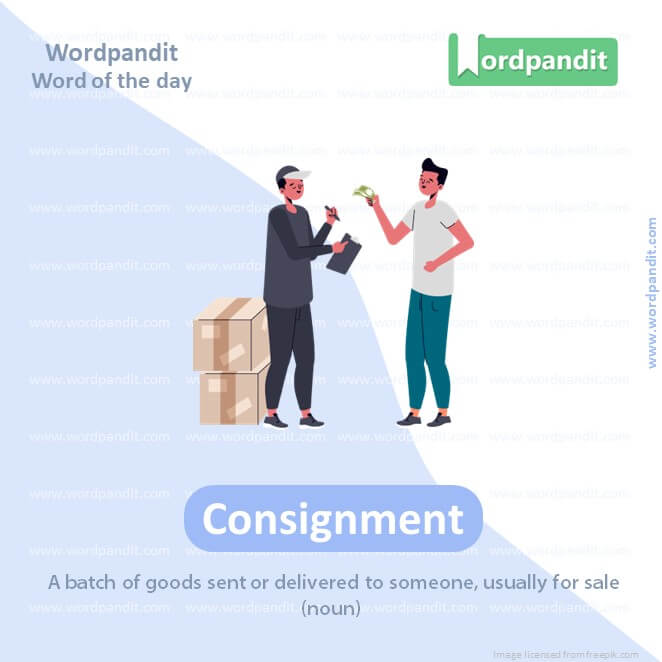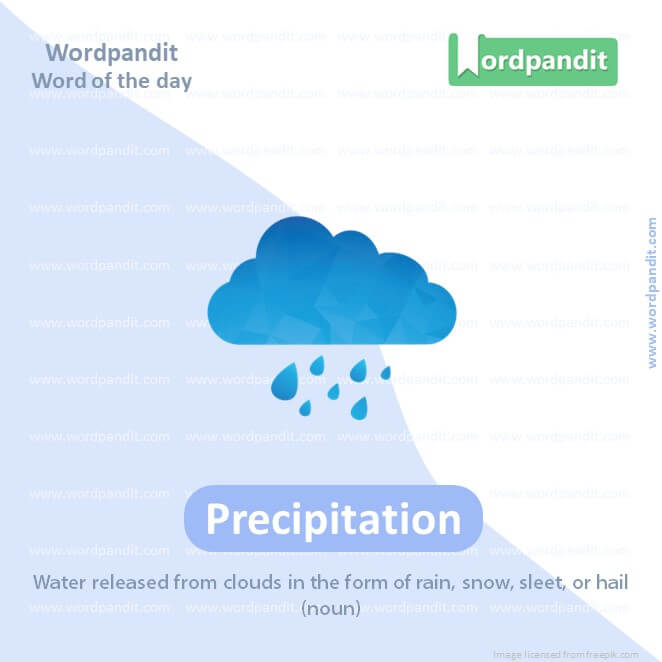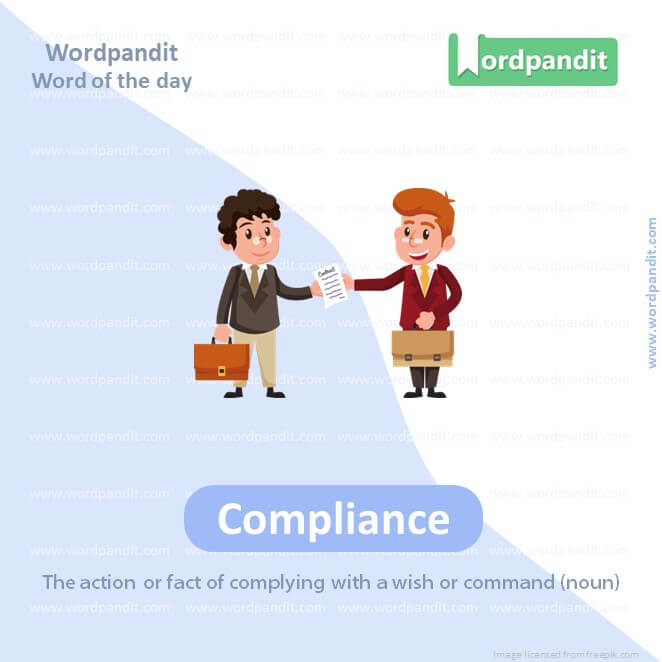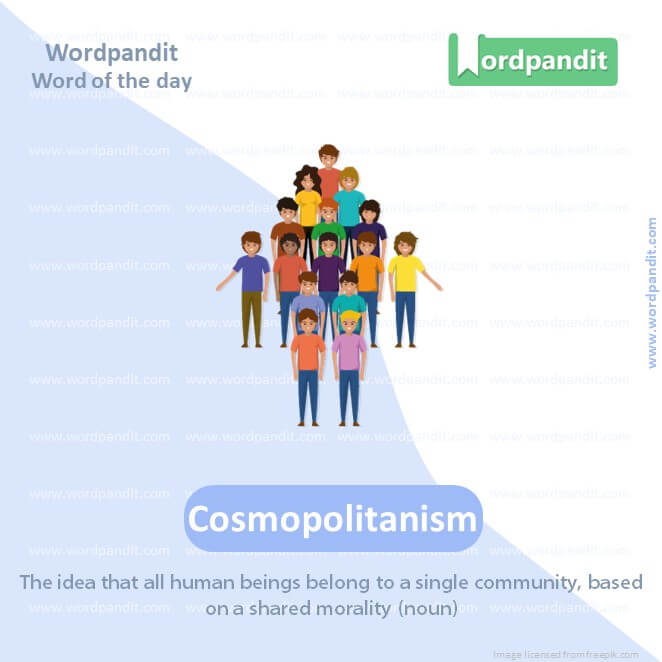Daily Vocabulary Words: List of Daily Used Words in Leading Indian Newspapers
Hi there. Welcome to this special section @ Wordpandit. Our endeavour here is straightforward: highlighting daily vocabulary words that you would come across in leading newspapers in the country. We have included the following newspapers in our selection:
• The Times of India
• The Economic Times
• Hindustan Times
• Mint
• Indian Express
We are putting in extensive work to develop your vocabulary. All you have to do is be regular with this section and check out this post daily. This is your repository of commonly used words; essentially, we are posting a list of daily used words. Hence, this has significant practical application as it teaches you words that are commonly used in leading publications mentioned above.
Visit the website daily to learn words from leading Indian newspapers.

WORD-1: Indigeneity
CONTEXT: To appreciate why JPS and his brand of indigenous knowledge will be missed we only have to look at what passes in the name of indigeneity today
SOURCE: Indian express
EXPLANATORY PARAGRAPH: Indigeneity is about belonging to a place because your family and ancestors were originally from there a long, long time ago. It’s like knowing that the place where you play and live is where your great-grandparents also played and lived.
MEANING: The state of being native to a particular place or environment (noun).
PRONUNCIATION: in-dih-jeh-NEE-i-tee
SYNONYMS: Nativism, autochthony, nativity, aboriginality, nativeness.
USAGE EXAMPLES:
1. The museum exhibit celebrates the indigeneity of the local tribes.
2. Her research focuses on the indigeneity and rights of indigenous peoples.
3. Indigeneity is a key factor in the community’s cultural identity.
4. The festival honors the indigeneity of the region’s earliest inhabitants.
WORD-2: Encapsulated
CONTEXT: The word meant something crucial and specific to him; in fact, it encapsulated his intellectual manifesto.
SOURCE: Indian express
EXPLANATORY PARAGRAPH: Encapsulated is like putting something important into a small, safe container so it’s easy to understand or keep protected. It’s like putting your favorite toy in a special box where it fits perfectly.
MEANING: Expressed in a brief, comprehensive summary; enclosed in a capsule (adjective).
PRONUNCIATION: en-KAP-suh-lay-ted
SYNONYMS: Summarized, condensed, compressed, encapsuled, encased, enclosed.
USAGE EXAMPLES:
1. The documentary encapsulated the events of the decade.
2. His feelings were encapsulated in a single, heartfelt letter.
3. The report encapsulated the main points of the discussion.
4. The medicine is encapsulated in a gelatin shell.

WORD-3: Consignment
CONTEXT: Vehicles will have to be more expensive (think of iron rods or glass being transported while half of the consignment is protruding out of the vehicle or overcrowded school vans ferrying children), properly vetted drivers will demand a higher premium and last but not least, fares and freight charges will have to increase.
SOURCE: Hindustan times
EXPLANATORY PARAGRAPH: Consignment is when you give your stuff to a store so they can sell it for you, but it’s still yours until someone buys it. It’s like letting your friend borrow your toy to show others, and if someone likes it, they can buy it.
MEANING: A batch of goods sent or delivered to someone, usually for sale
(noun).
PRONUNCIATION: kun-SINE-ment
SYNONYMS: Shipment, delivery, cargo, freight, batch, lot.
USAGE EXAMPLES:
1. We received a consignment of clothes for the new season.
2. The artist sells her pottery on consignment at the local gallery.
3. The books will be sold on consignment.
4. He checked the consignment for any damage upon arrival.
WORD-4: Protruding
CONTEXT: Vehicles will have to be more expensive (think of iron rods or glass being transported while half of the consignment is protruding out of the vehicle or overcrowded school vans ferrying children), properly vetted drivers will demand a higher premium and last but not least, fares and freight charges will have to increase.
SOURCE: Hindustan times
EXPLANATORY PARAGRAPH: Protruding is when something sticks out from where it normally should be. It’s like when your book sticks out from the shelf because it’s too big to fit in with the others.
MEANING: Sticking out from a surface or part (adjective).
PRONUNCIATION: proh-TROO-ding
SYNONYMS: Jutting, extending, bulging, sticking out, projecting, overhanging.
USAGE EXAMPLES:
1. He carefully avoided the protruding nail on the wall.
2. Her elbow was protruding from beneath the blanket.
3. The rocks were dangerously protruding onto the path.
4. Protruding parts of the machine can be hazardous.

WORD-5: Precipitation
CONTEXT: The truck drivers’ strike is neither the first nor will it be the last precipitation on this front.
SOURCE: Hindustan times
EXPLANATORY PARAGRAPH: Precipitation is when water falls from the sky in different forms like rain, snow, or hail. It’s what makes puddles to jump in or snow to build snowmen.
MEANING: Water released from clouds in the form of rain, snow, sleet, or hail
(noun).
PRONUNCIATION: pri-sip-i-TAY-shun
SYNONYMS: Rainfall, snowfall, downpour, drizzle, sleet, hail.
USAGE EXAMPLES:
1. The forecast calls for heavy precipitation tomorrow.
2. They measured the amount of precipitation each month.
3. The region experiences high precipitation during the spring.
4. Sudden precipitation disrupted the outdoor event.
WORD-6: Postulating
CONTEXT: The EU Declaration on Development on November 22, 2021, privileges a human rights-based approach to development, postulating respect for human rights as “a precondition for the achievement of inclusive and sustainable development”.
SOURCE: Indian express
EXPLANATORY PARAGRAPH: Postulating is like making a smart guess about something without having all the information to be sure. It’s like saying you think there will be cookies for snack because you smell something sweet baking, even though you haven’t seen the cookies.
MEANING: Suggesting or assuming the existence of something as a basis for reasoning or argument (verb).
PRONUNCIATION: POS-chuh-lay-ting
SYNONYMS: Assuming, hypothesizing, proposing, presuming, theorizing, speculating.
USAGE EXAMPLES:
1. The scientist postulated the existence of a new planet.
2. His theory was based on postulating that all matter is made of energy.
3. She postulated a connection between the two events.
4. The study postulated an increase in future demand.
WORD-7: Abbreviated
CONTEXT: The use of unmanned lethal autonomous weapons systems, abbreviated in an unconscious irony by the US Defence Department as LAWs, illustrates complete machine-learning dependence and dehumanisation of the means of warfare, setting back the project of international humanitarian law.
SOURCE: Indian express
EXPLANATORY PARAGRAPH: Abbreviated is when something is made shorter, usually in a way that still shows what the full thing would say or be. It’s like when you write “bday” instead of “birthday.”
MEANING: Shortened; cut short (adjective).
PRONUNCIATION: uh-BREE-vee-ay-tid
SYNONYMS: Shortened, contracted, abridged, condensed, truncated, curtailed.
USAGE EXAMPLES:
1. He gave an abbreviated account of the trip.
2. The meeting was abbreviated due to time constraints.
3. Use an abbreviated version of the title in the citation.
4. The presentation was abbreviated to fit the schedule.

WORD-8: Compliance
CONTEXT: the government were to successfully address regulation failure, one must accept the fact that compliance with such regulations will lead to a huge increase in the cost of road transport in the country.
SOURCE: Hindustan times
EXPLANATORY PARAGRAPH: Compliance is when you follow rules or instructions that someone gives you. It’s like when you do what your teacher says so that everything in class can run smoothly.
MEANING: The action or fact of complying with a wish or command (noun).
PRONUNCIATION: kuhm-PLY-ans
SYNONYMS: Adherence, conformity, obedience, acquiescence, submission, observance.
USAGE EXAMPLES:
1. The company is in full compliance with the law.
2. They conducted a check to ensure compliance with safety regulations.
3. Compliance with the new policy is mandatory for all employees.
4. Non-compliance may result in penalties.
WORD-9: Segregating
CONTEXT: the most difficult when it comes to segregating high-cost and low-cost consumers from using transport.
SOURCE: Hindustan times
EXPLANATORY PARAGRAPH: Segregating means separating things or people into different groups. It’s like when you sort your colored pencils into different colors so each one is with pencils that look like it.
MEANING: Setting apart from others; separating into groups (verb).
PRONUNCIATION: SEG-ri-gay-ting
SYNONYMS: Separating, dividing, isolating, partitioning, dissociating, disassociating.
USAGE EXAMPLES:
1. The school system was criticized for segregating students by ability.
2. Waste segregation helps in recycling processes.
3. They are segregating the data into different categories.
4. The plants are segregated into species in different parts of the garden.

WORD-10: Cosmopolitanism
CONTEXT: the new fashion of a false cosmopolitanism and false humanitarianism” that nevertheless reproduces the old power relations between the imperial West and the rest.
SOURCE: Indian express
EXPLANATORY PARAGRAPH: Cosmopolitanism is when people think that all humans are part of one big community, no matter where they come from or what they look like. It’s like believing that everyone in the world is part of your neighborhood.
MEANING: The idea that all human beings belong to a single community, based
on a shared morality (noun).
PRONUNCIATION: koz-mo-pol-i-TAN-izm
SYNONYMS: Worldliness, universality, multiculturalism, globalism, broad-mindedness.
USAGE EXAMPLES:
1. Cosmopolitanism promotes dialogue and cooperation between different cultures.
2. His views on cosmopolitanism were influenced by his travels around the world.
3. The city’s cosmopolitanism is evident in its diverse culinary scene.
4. Cosmopolitanism challenges the idea of national borders limiting our moral obligations.
Vocabulary list
In navigating the seas of language learning, a ‘vocabulary list’ can often be a dependable guiding star. These collections of words serve as a focused learning tool, yet the technique of mastering a ‘vocabulary list’ effectively requires more than simple perusal. It calls for a smart, sustained approach that amalgamates understanding, memory, and application.
Exploring a ‘vocabulary list’ should be more than a one-way trip. It ought to be more like a round trip, wherein you learn the words, come back to review them, and then set out again for a new voyage. This repeated interactive way of exploring the ‘vocabulary list’ aids in solid memory retention and effective learning.
Next, while dealing with a ‘vocabulary list’, employing memory-boosting techniques can bolster your retention substantially. Here, mechanisms like spaced repetition systems and flashcards can simplify and streamline the process. Moreover, associating words on your ‘vocabulary list’ with visual cues or personal stories can help your brain make strong connections, strengthening your recall ability.
However, the most crucial aspect of learning from a ‘vocabulary list’ is active application. Conquering a list without using the words in real-world contexts might leave you with fleeting knowledge. Hence, make it a point to integrate these learnt words into your daily interactions, be it on social media, in email exchanges, or casual conversations. The regular utilization reinforces your understanding and brings the ‘vocabulary list’ to life.
Conclusively, the ‘vocabulary list’ is a treasure trove in a language learner’s quest, waiting to be unlocked strategically. Through the trinity of review, memory-enhancing techniques, and active application, one can master any ‘vocabulary list’. So, take charge of your learning journey and set sail with your ‘vocabulary list’, charting the vast and fascinating seas of language.













